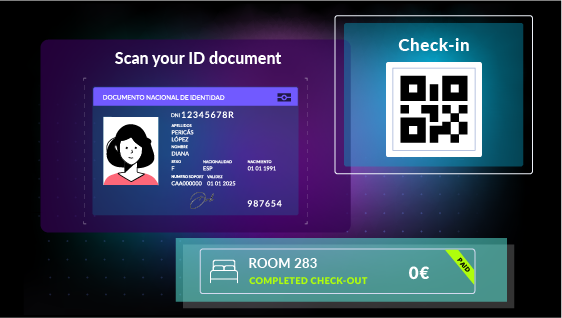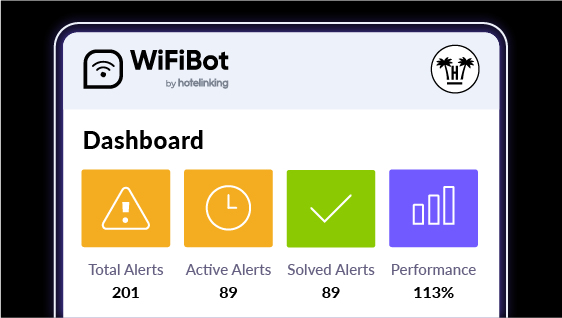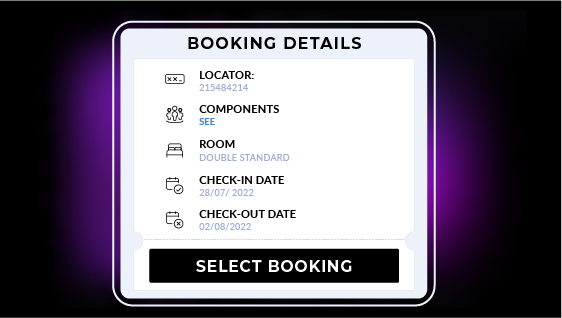
How to curb negative hotel reviews from your guests
Criticism is inevitable, the important thing is to know how to manage it properly so that it impacts your business as little as possible.
The information we obtain from our online searches greatly influences our purchasing decisions. In the case of travel and, specifically for hotels, it is a fundamental part of the traveller journey: in the planning stage, travellers gather as much information as possible about the destination, activities, flights, accommodation, etc., with the opinions of other guests being a key factor in the decision-making process because they reflect a more realistic vision of the hotel and, therefore, a more credible one.
These reviews grant credibility to an accommodation and help it stand out versus its competitors. Besides, having many positive reviews in online reputation rankings has a direct impact on your revenue: it has been proven that travellers are inclined to choose a hotel with a better reputation despite the price, as they associate it with higher quality.
Therefore, it is essential to know if the guest’s expectations have been met and if they have had a satisfactory stay in order to influence their perceptions and, above all, look for service areas of improvement. Not doing so is not an option, especially when the profitability of the business is at stake.
Guidelines for managing negative reviews
It cannot be assumed that just because the numbers are good, customers are satisfied and will rate your accommodation positively. If guest reviews can make a difference to a business, don’t let inertia take over and take the reins of reputation management.
It is also important to bear in mind that sometimes things do not go as expected: accidents, small incidents, losses, inconsistent complaints, … The important thing is to be prepared and to know exactly what to do to deal with each situation. But how? To begin with, you have to be willing to listen to your guests and value their point of view in order to respond assertively and prevent bad reviews from being shared on the internet. We recommend that you follow these guidelines:
1. Meet expectations
There is nothing more frustrating for a guest than realising that the hotel has nothing to do with what is published online (website, OTAs, social media, etc.).
It is true that guests’ expectations are constantly changing and in order to meet or exceed them, it is necessary to innovate and sometimes this is not possible because it involves a financial and time investment.
However, there are simple improvements that can enhance the guest experience and are vital in building loyalty and positive feedback: from welcome emails, no-wait check-in and staff recommendations, to little touches, everything counts when it comes to delighting the guest.
But above all, you should not convey an idea of the property that does not correspond to reality (communicating services that are no longer available, exaggerating qualities of the hotel, etc.) because this will generate great guest dissatisfaction, which can (rightly) lead to bad reviews and therefore negatively affect your reputation.
2. Ask for guest feedback during the stay
To ensure that the guest is satisfied with their stay, it is necessary to somehow collect their impressions. Satisfaction surveys are a resource for obtaining detailed information about the guest experience.
Generally, satisfaction questionnaires are filled in or sent once the guest has left the hotel and, for this reason, we also recommend implementing preventive measures to anticipate possible negative reviews in order to reduce their impact on opinion portals.
To this end, satisfaction surveys during the stay allow us to detect dissatisfied customers and to resolve possible incidents timely. In this way, unfair reviews and negative opinions can be stopped and even become positive because, when an unwanted situation is solved quickly, a guest is doubly satisfied. This, in turn, will influence the quality of their reviews on the opinion portals and, finally, the position in the ranking.
To do this, satisfaction surveys during the stay allow to detect dissatisfied guests when they are still in the hotel and thus be able to react in time, solving any uncomfortable situation.
From their control panel, the hotelier can set a cut-off score from 0 to 10, so that all satisfaction surveys completed by guests staying at the hotel that are below the score will automatically generate an email notification to the designated staff members so that they can resolve any incidents.
This tool acts as a barrier before a bad review is published and improves the customer’s perception of the brand. For example, in the case of the SH Valencia Palace hotel , more than 3,000 surveys and 2,700 emails were sent to guests to encourage them to leave their opinion on Tripadvisor, redirecting more than 410 people to this page. After several months, as a result, the hotel increased the number of excellent reviews by 32 % and, above all, the number of negative reviews decreased: in less than two years, only 7 more negative reviews were published on Tripadvisor. It also climbed in the ranking of hotels in Valencia from 36th to 23rd position out of 109 accommodations.
From here you can consult several success stories of clients who, thanks to the surveys, have risen in the reputation rankings with the consequent improvement in their image and bookings.
3. Actively monitor and manage your online reputation
To avoid bad reviews, you need to be able to rectify incidents or guest problems quickly. Conducting a questionnaire in the first days of the stay is essential because there is still a chance to change perceptions and to show guests that you really care about the quality of their experience.
It is also advisable to ask guests to complete a satisfaction form upon departure and, if positive, encourage them to leave their feedback in the most appropriate reputation channel.
Guest feedback is an opportunity for improvement and also acts as an open audit system which, as mentioned above, influences the choices of other travellers. Hence the importance of evaluating the guest experience from start to finish in order to improve it and ultimately guide them to online reputation channels.
With Hotelinking it is also possible to create automated post-stay emails where guests can rate their hotel experience on the most important online reputation channels according to their origin: Tripadvisor, Google Review, Holidaycheck, Yelp, Tophotel or Zoover.
The interesting thing about this communication is that with a single click the customer is redirected to the online reputation channel, directly to the hotel’s profile, making it easier for the customer to leave their opinion.
Thanks to automated submissions, your hotel will receive a constant flow of reviews and, as a result, will be able to climb the rankings more easily, improve brand visibility and get more direct bookings.
4. Respond to all opinions, even negative ones.
Finally, don’t forget the comments that are posted on online reputation pages: guests have taken the time to write a review and will appreciate a reply, even if it is just to say thank you, because it creates a sense of differentiation and they will feel valued.
While it is easier to deal with positive criticism, the real challenge is to respond to negative criticism because if you don’t respond appropriately, it can create a reputation crisis that damages your image. Guests are very observant and before booking a room they are likely to look at the hotel’s responses as well.
Therefore, a well-managed negative review can change the perceptions of dissatisfied customers, turning them into repeat guests and even attracting new ones. It is important to answer clearly and respectfully in order to prevent the problem from escalating and to stop the controversy immediately.
Expressing appreciation for the opinion, reinforcing the positive aspects, apologising for any problems or explaining the actions that will be taken to improve, can make a difference and change the customer’s impression.








